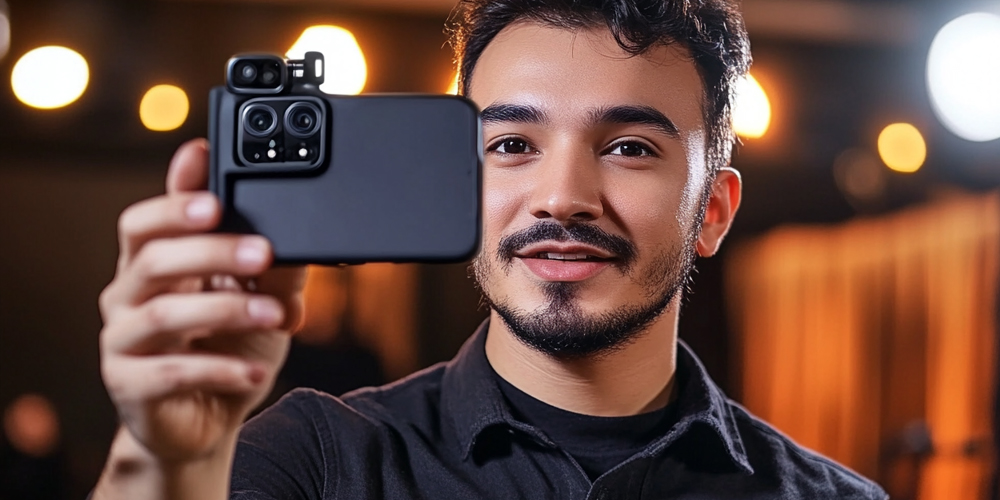Facebook: The Social Media Game Changer
Facebook was originally created by Mark Zuckerberg in 2004 as a social networking site for college students. But it soon grew past its intended listeners and became popular with people of all ages and backgrounds. By the year 2008, Facebook was the world’s number one social media site, eclipsing competitors, drawing heavy user engagement and content while also sharing 12 million images a day.
Now, through stretching to meet changing user needs, innovating, and simply buying competing platforms—like Instagram and Whatsapp—Facebook is arguably more successful than it was in its earlier days. Facebook has shaped social media as we know it today, as well as the evolution of social media platforms to come.
Facebook Development — Digitalization of social media
The Rise of Video Content
In fact, Facebook has a lot to do with the rise of video content across social media. However, as users started consuming more and more video content, Facebook rolled out features like Facebook Live and video ads, enabling both businesses and individuals to engage audiences in real-time. The demand for video content has affected not just Facebook—other social media platforms, such as Instagram, YouTube, and TikTok, just to name a few, have mimicked similar features in their platforms.
As one of the strongest types of media, video has been made a major focus on Facebook and that effort worked to move video to the forefront of what people say they want on social media. Facebook claims billions of videos are viewed each day and has not relented in encouraging more in-context interactive and immersive video experiences—from 360-degree videos to AR filters.

2. The Growth of Influencer Marketing
The second key trend Facebook has been instrumental in driving is the growth of influencer marketing. And it enabled users to develop personal brands and amass significant followings, making Facebook (and its subsidiary Instagram) the perfect place for influencers to market goods, services and ideas to millions of people.
Facebook and Instagram influencers have become trusted sources across numerous sectors, whether they be fashion and beauty or fitness and technology. Thus businesses have been forced to reconsider their marketing strategies which have come to prioritize influencer partnerships that reach target demographics directly. This evolution of consumer behavior has been indirectly explained through the appropriate marketing channels using either traditional or innovative marketing with social media channels and influencers playing a vital role in this framework of social media marketing.
3.The Integration of E-commerce
We’ve seen Facebook become another major player in bringing e-commerce to social platforms. The Facebook Marketplace and Shops feature allowed the companies and users to buy or sell products directly through Facebook. By doing so, it transformed Facebook into a marketplace as opposed to a social platform, enabling businesses to connect with their potential customers—they already spent most of their time on Facebook!
Instagram Shopping: The Rise of Social Commerce Users need to adjust to the Instagram shopping feed as they now see all the products at their disposal and avoid making purchases outside the application. This behavior is future-proofing social media by creating this symbiotic relationship between social and commercially geared activity, a facet we will see heavily infused into how platforms like Facebook and Instagram function as not only a hub for social interaction but e-commerce as well.
How Facebook Influenced How People Used Social Media
1. Communication & Networking in Real-Time
Facebook has revolutionized communication by allowing users to interact in real time with their loved ones and businesses worldwide. To Communication, a Facebook Messenger was also launched, enabling instant messaging between these users. Dabbing as an all-in-one communication app, Messenger today includes voice and video calls, group chats, and money transfers, among other things.
Messenger’s growth has only added to the surge of this kind of chat-based communication, including many businesses using chatbots for both customer service and lead generation. Facebook’s investment into messaging technologies—such as the integration of WhatsApp and Messenger—has also laid the foundation for a more connected, chat-driven social experience.
2.Have you ever belonged to a virtual community?
Facebook groups have never been as good at bringing people together, and today they have built up digital communities around shared interests. These groups have enabled users to share ideas, support one another, and work together in ways previously not possible. Facebook groups have become an integral part of the social media experience for millions of users, from hobbyist groups to professional networking forums.
With the advent of the ability to form private or public groups based on topics of common interest, highly engaged communities have formed. This movement toward virtual neighborhoods has spilled into other social platforms, encouraging them to launch similar products, like Twitter’s “Fleets” and Instagram’s “Close Friends.”

Technological Innovations by FacebookChanging the Ways We Connect on Social Media
1. Machine learning and artificial intelligence
The AI & ML Applications in Facebook has been one of the first companies to implement AI and ML into its services. It applies ai to everything from its news feed algorithm to content moderation tools Facebook uses artificial intelligence to understand how the users interact with the platform.
Other ways Facebook uses AI is to try to reduce harmful content—including hate speech, fake news, and misinformation. With the help of machine learning, Facebook’s content moderation system has been optimized to detect and remove harmful posts, assisting in ensuring a secure and positive environment for users.
With the advancement of AI, Facebook’s ability to deliver tailored content and mitigate posting harmful content is set to redefine the social media platform.
2. Augmented Reality and Virtual Reality
Another area of development has been with the company’s investment in VR and AR technologies, which promise new ways to experience social media environments in more immersive ways. In 2014, Facebook bought Oculus, an OG VR company, and ever since has been working on a series of VR products aimed at completely redoing social experiences online.
In a move that could move social media even further, Facebook has released Facebook Horizon, a virtual reality world that takes full advantage of immersive interaction. On top of this, there have also been augmented reality features like AR filters on Instagram and Facebook, where digital content is experienced in new and interactive ways.
This chapter will help combine the digital world with the physical world.
Predictions about the Future of Facebook and Social Media
With its continuous innovation and adaptation, Facebook nonetheless still plays an important role in shaping the future of social media. Far from solely being a commercial social site, Facebook could center on artificial intelligence, e-commerce, virtual reality, augmented reality, and more.
The same applies to other social media platforms like Facebook and Instagram, where the future will see innovation integrating digital technologies. Who your friend is and what they do influences your experience. Given its evolutionary nature, Facebook is increasingly becoming a shaping force of the next wave of digital social experience.